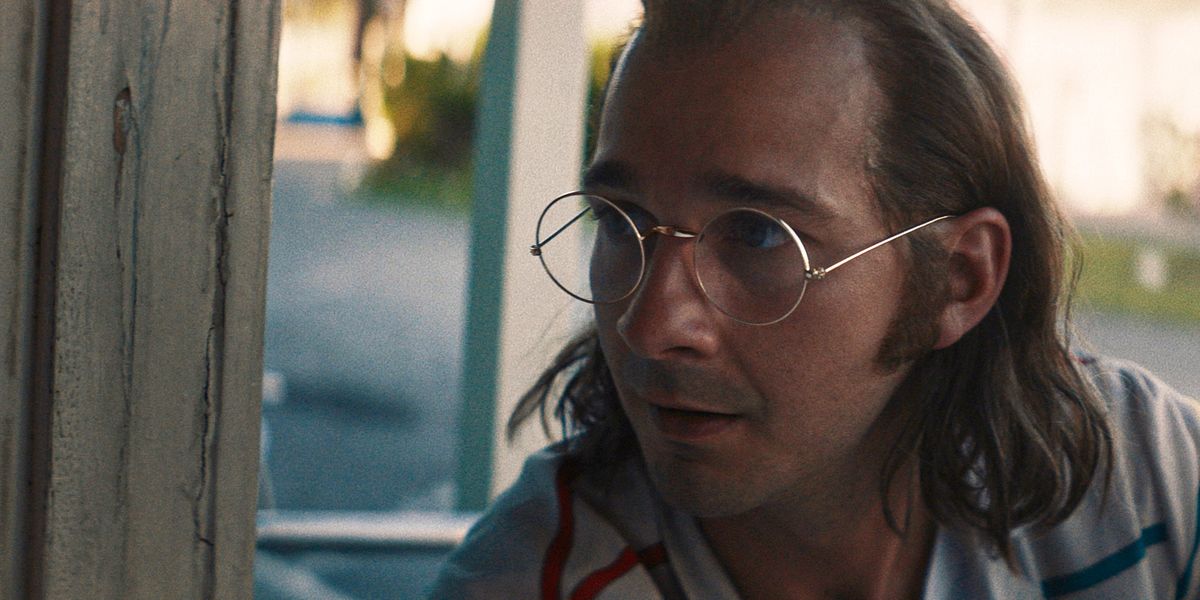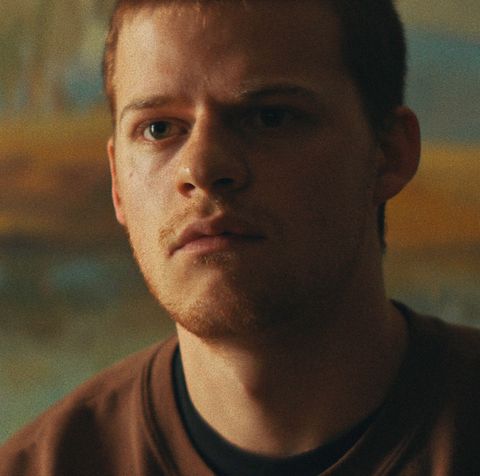For all the post-#MeToo talk of dismantling a culture built on toxic masculinity, significant change is slow coming. So when a reformed offender like Shia LaBeouf acknowledges the root of his bad behavior, it looks like progress. But is it enough?
With his semi-autobiographical movie Honey Boy, LaBeouf challenges himself to look his demons in the eye. The actor wrote and stars in Alma Ha’rel’s unflinching feature directorial debut based on LaBeouf’s own life. The film opens at the height of Otis Lort’s (Lucas Hedges) celebrity downfall, segueing from the premiere of his blockbuster (a stand-in for LaBeouf’s role in Transformers) to a profanity-laced arrest for drunkenly crashing his car—a reference to the night LaBeouf infamously screamed “Do you know who the fuck I am?!” at security guards. From there, Otis goes to rehab, where he confronts painful memories of growing up with his father James (played bravely by LaBeouf), a registered sex offender and hotheaded has-been who controlled his young son’s career and income during his rise to fame.
Hedges delivers a moving and appropriately grating performance as a 22-year-old who enjoyed years of entitlement and now faces accountability. But it’s the younger version of Otis, played marvelously by Noah Jupe, who humanizes the story. Through flashbacks, the film examines Otis’s shattering formative years, shaped by a bigoted, abusive father who shuttled him between a raggedy motel room and the set of his star-making TV show. LaBeouf’s portrayal of his own father exposes a man drowning in envy and self-pity over his son’s success, leeching off Otis’s fame and money as the boy yearns for some fatherly affection.
Honey Boy could have easily reduced James to a shallow stereotype—a toxic dad who teaches his pre-teen offspring how to smoke a cigarette, disparage his mother (inexplicably only ever represented as a voice on the telephone), and pee like a man. But in LaBeouf’s hands, the character is brutally human, anchored by the actor’s physical and emotional journey toward unearthing the real man behind his father.
Revisiting this vulnerable period could not have been easy for LaBeouf, whose adult stand-in finally achieves the breakthrough he needs in the final moments of the film, as he decides definitively to make a movie about his father. But is merely identifying the cause of toxic behavior the same as rectifying it? In the film’s early moments, Missy Elliott’s “My Struggles” plays as adult Otis enters the frame, urging us to see him as a victim of his chaotic environment. Pinpointing the root of am issue is a move in the right direction, but it’s unclear whether Otis (and by extension, LaBeouf) left space in the therapeutic process to determine how he’s going to be a better man moving forward.
For those who may have forgotten, LaBeouf spent years tarnishing a promising career and disaffecting fans with a staggering criminal record, culminating in a racist rant against a police officer in 2017. He admitted to Esquire in a 2018 profile that he looks back on that particular event as “mortifying,” “desperate,” and an example of “white privilege.” Honey Boy seems to hope its audience will view the film as proof that LaBeouf is no longer that person; the movie is as much a chance for the actor to present a new version of himself as it is a sobering account of the experiences that led to where he is today. But it would have behooved LaBeouf to end Otis’s story not just with his decision to confront his past, but rather, with some sense that he’s improved after undergoing this journey. It’s a nagging critique of an otherwise remarkable film that reflects an amazing amount of trust between filmmaker and star/writer, but a valid one as men like LaBeouf continue to heal, rebuild their images, and take the necessary strides to reform.


